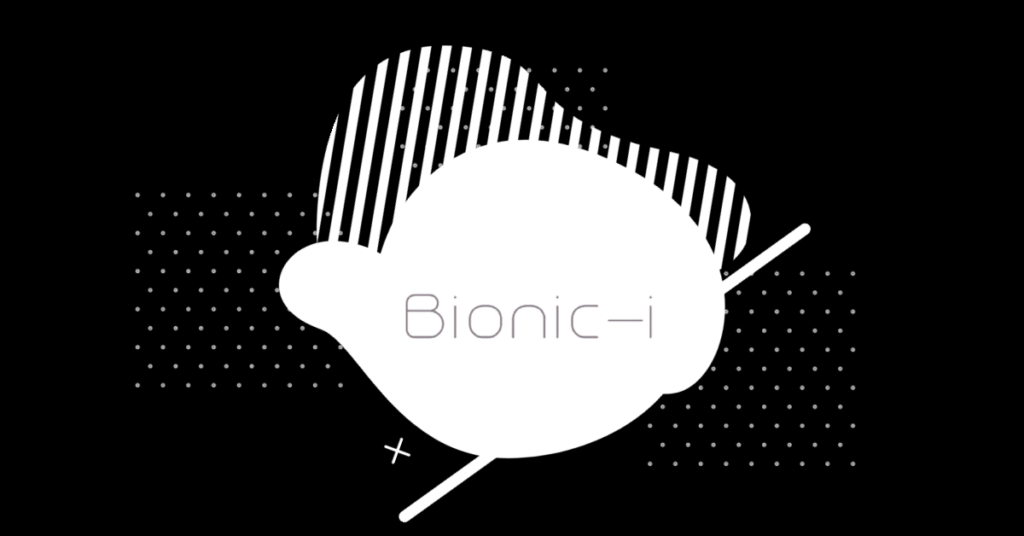Home » Bionic-i is Eliminating Indoor Viral Aerosols with Their Sterilization Robot
Bionic-i is Eliminating Indoor Viral Aerosols with Their Sterilization Robot

The COVID-19 pandemic has caused one of the most important economic crises in history. In this unprecedented context, Canadian entrepreneurs have once again shown their courage and ability to adapt. We sat down with entrepreneurs in our ecosystem to learn about how their businesses have been impacted by COVID-19, how they’re pivoting for success, and how they’re building for the future in these uncertain times. Check out the full series here.
COVID-19 has encouraged us all to evaluate our safety in public spaces. Without sufficient ventilation, aerosolized viral particles can linger indoors for hours, increasing the risk of infection for anyone in the space. Advanced heating, ventilation, and air conditioning (HVAC) technology is one possible solution, but upgrades can cost hundreds of dollars and a lot of time to set up. Manual cleaning methods are infrequent and insufficient for creating safe work environments; surfaces such as tables, chairs, and doors aren’t properly cleaned between uses, and many are often missed during regular room cleaning.
"COVID-19 had such an arresting effect on every aspect of life and on our cataract surgical practice -- all elective surgeries were cancelled in Ontario. We recognized a solution was needed to protect our patients and our staff."
Joseph Ma has led his team at Bionic-i to create a powerful sterilization robot called LightShield, which continually sterilizes viral particles and allows workers to maintain their safety in shared spaces -- without the interruption and expense of manual cleaning or HVAC solutions. With support from the Canadian Medical Association and the Natural Sciences and Engineering Research Council of Canada (NSERC), LightShield was engineered from the ground-up to eliminate indoor viral aerosols in the stringent sterilization standards of operating rooms. The technology is suitable for preventing the spread of COVID-19 in any environment such as businesses, schools, and communities.
“Pre-COVID, Bionic-i was creating a bio-electronic intelligent and interconnected implantable visual device,” says Bionic-i President Joseph Ma. “However, COVID-19 had such an arresting effect on every aspect of life and on our cataract surgical practice -- all elective surgeries were cancelled in Ontario. We recognized a solution was needed to protect our patients and our staff. As evidence of indoor COVID-19 aerosol spread has mounted, with the CDC formally acknowledging its importance, we realized that in addition to operating rooms, our solution would be useful for senior homes, schools, retail businesses and all public spaces.”
LightShield was designed from the ground-up to sterilize viral aerosols 10 times faster, and drastically improve ventilation efficiently and cost-effectively, with immediate deployment requiring zero downtime typically needed for renovations to existing infrastructure.
Bionic-i wanted to provide the safest possible surgical environment for their patients, especially since their focus, cataract surgery patients, are generally elderly and among those at highest risk of mortality if infected. Bionic-i Lightshield arose as a synergy between their research and the domain expertise necessary to formulate and quickly bring to market a solution that could potentially benefit the Canadian medical system as a whole. LightShield was designed from the ground-up to sterilize viral aerosols 10 times faster, and drastically improve ventilation efficiently and cost-effectively, with immediate deployment requiring zero downtime typically needed for renovations to existing infrastructure.
“Plagues, diseases, and uncertainty have ravaged humanity throughout civilization. If anything, we have been especially fortunate over these past 70 years to have lived in relatively peaceful times in North America, with a reasonable control on infectious diseases such as measles, polio, and smallpox. Whether COVID-19 becomes endemic or fades into history, other infectious diseases will arise and become important causes of morbidity and mortality,” says Ma. “Although these are difficult times, people will eventually need to move forward with their lives. Our society will need to continue to function, and people will need to have surgery safely. We are actively building for this future with our Bionic-i cataract implant and our Bionic-i Lightshield device.”
Ma believes that as a society, we will ultimately prevail and move forward, more prepared and hopefully with a stronger appreciation for the importance of health and hygiene -- and a respect for our environment. “Scarcity leads to fractured self-interests,” Ma says, “but countries and humanity need to realize that ultimately, we’re in this together.”
Learn more about how Bionic-i is creating safe work environments on their website.
Bionic-i is part of ventureLAB’s Hardware Catalyst Initiative. ventureLAB is a leading technology hub located in Markham in York Region, Canada’s second largest tech cluster. Through programs focused on capital, talent, technology, and customers, ventureLAB has supported over 2,000 tech companies and entrepreneurs, including 100 companies that have raised over $115 million and created close to 4,000 jobs. Join us.
VentureLAB
https://www.venturelab.ca/
ventureLAB is a leading global founder community for hardware technology and enterprise software companies in Canada. Our organization is led by seasoned entrepreneurs and business leaders with decades of industry experience in building IP-rich start-ups, scale-ups, and global multinationals to help you scale your business. Located at the heart of Ontario’s innovation corridor in York Region, ventureLAB is part of one of the biggest and most diverse tech communities in Canada. We enable technology startups to accelerate the commercialization of transformational products on a global scale.


